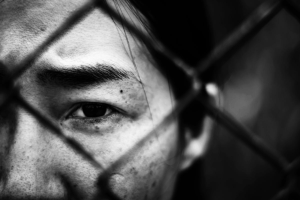 “A woman gave birth alone in her cell in the early hours of the morning with no one to help or comfort her through her labour and her baby died. This happened not in a Victorian workhouse, or in some forsaken, wartorn country but in Surrey at HMP Bronzefield less than three weeks ago” reports Alice Thomson in The Times of 16 October 2019 (‘Female offenders need help, not prison’).
“A woman gave birth alone in her cell in the early hours of the morning with no one to help or comfort her through her labour and her baby died. This happened not in a Victorian workhouse, or in some forsaken, wartorn country but in Surrey at HMP Bronzefield less than three weeks ago” reports Alice Thomson in The Times of 16 October 2019 (‘Female offenders need help, not prison’).
This woman was a victim of austerity cuts that have afflicted the prison service as well as every type of social support provided to the working class in this country. She was left unattended because there were no staff available to attend to her. But why was she in prison despite being heavily pregnant? Could she not have been left to give birth under normal conditions before being incarcerated? Despite the staff shortages in prisons, some 100 women each year give birth in prison.
Alice Thomson reports that of the women currently incarcerated, “More than 70 per cent suffer from mental health disorders and 57 per cent have been victims of domestic abuse”. Is prison really the right place for them, when because of staff shortages, they may well be locked up in their cells for 23 hours of every day?
She continues: “These often vulnerable female inmates are most likely to be doing time for offences such as fare dodging, shoplifting, TV licence evasion, rent arrears and prostitution, often caused by family finance or drug problems; 84 per cent of women in prison have committed non-violent offences”. Not to put too fine a point on it, they are jailed for the crime of being poor. The result is often drastic beyond endurance:
“Nearly two thirds of sentences are for six months or less, which is enough time to lose a job, housing or child custody but not enough for rehabilitation. Two fifths leave without any settled accommodation. No wonder almost half reoffend within the year” (ibid.).
The cruelty meted out to these vulnerable people turns out to be extremely costly not only to them but to society as a whole:
“Single mothers often suffer most as they struggle to organise their family life while inside, yet if they go to prison the cost to the taxpayer is £56,000 a year”.
It would cost a fraction of this amount to provide a modicum of financial support to families in deep financial distress.
In addition some 95% of the children of women prisoners are forced to leave their homes, many of them going to foster homes, creating an even greater burden for the public purse.
On top of the trauma of being separated from their mothers, these children are often uprooted from their communities, from their schools, from their friends and their support systems, considerably reducing their chances of avoiding a life of crime as they grow into adulthood.
In other words, it is clear that the government which prides itself on being tough on crime and tough on the causes of crime is actually doing its utmost to generate more criminals for its privatised and under-resourced prisons to lock up, involving huge transfers from the public purse to the pockets of the vulture privateers to whom prison services have been hived off.
Comments are closed, but trackbacks and pingbacks are open.